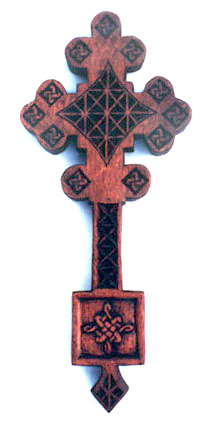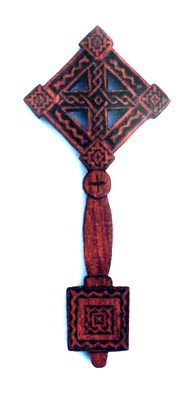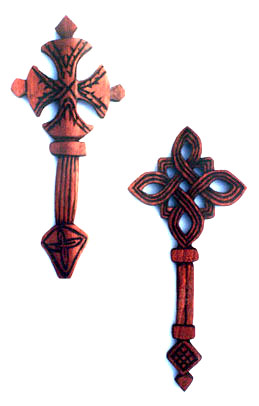|
Byzantine and Ethiopian crosses |
||||
|
As I said, during the seven months that I spent at the monastery of St. Jean du Desert, in the outskirts of Jerusalem, I was the apprentice of Pere Samuel. This is just a small sample of the crosses that I used to carve at his atelier. They were made in olive wood from the fields of Bethlehem; olive is a hard wood, and it allows good detail. This was back in 1987, so it's been awhile; the whole setting of the place, including the magnificent stone building, the terraced vineyards, the peaceful surroundings, the beautiful and awesome byzantine rites and the learning of a new craft made for a very magical experience. |
||||
 |
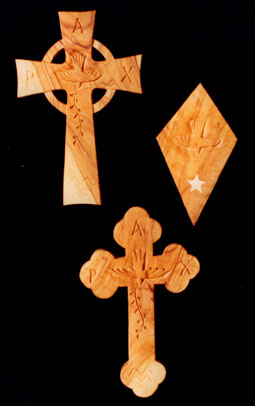 |
|||
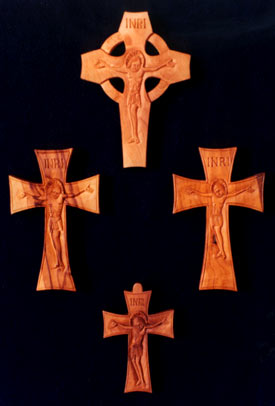 |
||||
|
Once a week, Abba Gebraab used to come to the woodworking atelier. He was an ethiopian monk from the Abyssinian Monastery in the roof of the Church of the Holy Sepulcher in Jerusalem. He came to make his crosses, and it was so refreshing to have him with us. He was a simple, good spirited guy, with a heart of gold. He gave me a glimpse of what ethiopian, and african art is. He was not burdened by any notion of symmetry, and he was so fluid and spontaneous in his art that it was a joy to work with him. I made this crosses based on models by him, or from a book that he used to bring; my style is much more precise and symmetrical. He used to like the way I worked, and conversely, I used to admire his artwork. |
||||
|
||||
| The cross on the far left is a bishop's cross, thus bigger and more elaborate. The other three are normal priests or monks' crosses; it seems that they usually carry them around when they have to go from one place to another. The third cross from left to right was made by Abba Gebraab, we exchanged crosses as a present when it was time for me to leave the monastery, and Jerusalem, and Palestine. I haven't been back there since. | ||||
